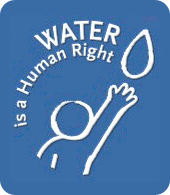Jongerden (Netherlands): The future of today
Mr. Joost JONGERDEN's speech, Academic, The Netherlands
The future of today
At every conference or meeting I attended over the last decades, from those in fancy and prestigious places like here, in the EP, to backstreet meeting rooms, speeches could have started with the opening sentence that the Kurdish issue in Turkey is a topical issue. This seemingly timeless opening sentence may give the impression that nothing has changed, and yet nothing is less true. Today, the prospects for a solution are very different than a few years ago, let alone a few decades ago. Much has been accomplished, though still much remains to be done. That the prospects of the Kurdish issue in Turkey today look different from yesterday should be credited to all those people who struggled for a different future, and to a large extend, we should acknowledge, to the PKK. Taking of as a small group of comrades in arms, it has become a mass movement, institutionalized in many different fields. The movement also developed a political program which is both ideologically visionary and grounded in every day practices. It is on this that I would like to say a few words, and also make a critical remark.
This ideologically visionary and grounded political program is of course the program of radical democracy. In short, this project of radical democracy consists of the project of democratic autonomy and democratic confederalism. Democratic autonomy refers to practices in which people produce and reproduce the necessary and desired conditions for living through direct engagement and collaboration with one another[1]. Democratic confederalism can be characterized as a bottom-up system of self-administration. Democratic confederalism is like a rhizome: the council are the nodes in a spatially extending network and symbolizes the unification of Kurdistan as well as a brotherhood of people.
The idea of radical democracy is utopian, of course. But paraphrasing Oscar Wilde: a vision of the world that does not include utopia is not even worth considering. We need utopia as a direction towards the good society, towards a just society. Yet in a certain way radical democracy is not only utopian, a place nowhere. It is also pantopian, a place everywhere, since the projects of radical democracy are grounded and practiced. In Diyarbakir, a city I feel attached to, I have seen ‘radical democracy’ in action, but, for example, is also the practiced in Western Kurdistan in the form of a council-movement. These councils assumed the responsibility of organizing social life, and were able to give shape to the provision of basic social services in the context of uprising and war in Syria.
Yet there are also developments which stand square to this idea of radical democracy. In Diyarbakir, but other cities in the region too, we can observe an tendency of social fragmentation and separation. This social fragmentation and separation expresses itself in a retreat of the better-off from neighbourhoods near the centre of the city to new suburbs. They settle in in gated communities, with private guards and camera surveillance. The inhabitants of these gated communities do their shopping in malls, which are also guarded and surveilled, and recreate in similar privatized and securitized sites. The Flemish essayist Lieven de Cauter refers to this spatial cocooning as the development of a capsular society. This capsular society is a society in which life is withdrawn in private enclaves. In a capsular society the public domain is evacuated, like the skyscraper killed the street. Giving up on the public domain, giving up on the street, De Cauter argues, is giving up on the world outside. What is left is social separation and segregation. This social separation and segregation is partly the result of the systematic and systemic production of insecurity, but also of a growing social-economic inequality produced by neo-liberal policies. It is an urban reflection of the idea that ‘there is no such thing as society[2]’. This spatial cocooning, the development of capsular cities, the architecture and planning of social separation and segregation, needs to be questioned and discussed. The question how an alternative urban policy, a democratic urbanism, could look like, needs to be asked and debated. And maybe Abdullah Öcalan was referring to that when he told his lawyers years ago that they should advice DTP [BDP] municipalities to read Murray Bookchin, one of the main thinkers in the field of political ecology and democratic urbanism. This recommendation is more topical today than ever.
***
The prospects for a better future are not only depending on the practising of radical democracy, but also on negotiations. In March this year, following the newroz statement of Adbullah Öcalan, the prospects for a negotiated peace seemed to be bright. Though no-one expected miracles in this grinding problem, the idea took hold that the parties in this conflict, the PKK and the state, were willing to find a settlement. However, in the months following the newroz declaration we have witnessed a faltering of a possible peace process. The question facing us is a rather simple one: What went wrong? In an exploration of answers to this question, we should take at least two issues into consideration: 1) ill-managed expectations and diverging objectives associated with the withdrawal, and 2) an ill-managed process.
Let me start with the ill-managed expectations.
Essentially, the AKP and PKK have a very different problem analysis. Erdogan, the AKP, or, for that matter, the Turkish state, sees the problem as one of ‘terrorism’ and ‘weapons’, while the PKK does not considers the armed struggle to be the problem, but the symptom of a more fundamental problem: Turkey’s cultural-nationalist politics in which Kurds had to qualify themselves as Turks. In short, for the state the problem is security whereas for the Kurds the problem is political, an issue of rights. The PKK twins the withdrawal of its fighters to a political return, while the AKP seems to consider the withdrawal as the beginning of a liquidation of the PKK, preferable accompanied by an asylum for the party’s cadre in third countries. If the AKP does not abandon this objective, the talks become warfare by political means.
***
Turning to the peace process, the AKP government has had contacts with the PKK for several years, with talks taking place in various settings and contexts. In fact, what we have been witnessing over the last year or two can be referred to as a contraction of the composition or structure of the talks. The current round of negotiations between ‘the PKK’ and ‘the state’ are, in fact, indirect communications between state-officials and Abdullah Öcalan, with representatives in Turkey (BDP) and the organisation (PKK) being manoeuvred in a satellite position of interlocutor. As compared to previous rounds of talks, the so-called ‘Imrali Process’ narrowed down the circle of engagement from that of the ‘Oslo Consultation’, a prolonged series of face-to-face contacts between representatives of the PKK and the state over the 2007-2011 period, in which high ranking PKK representatives and the undersecretary of the Turkish Intelligence Agency MIT participated.
In an interview, Zubeyir Aydar stated in March 2013:
“If we are partner in the negotiations/interlocutor, we want to determine our own delegation. Let us be clear: Abdullah Öcalan represents us and talks in our name. But he is only one person. He should have the right to select his own delegation (...) On the one had we have a state, with thousands of civil servants, advisors, archives and documents, and on the other side one person to who they say: let’s solve this problem. OK, let’s solve the problem, but he needs people to assist him, he needs advisors. (...) Now he cannot talk to anyone. That is not a way to have healthy negotiations. And if they are sincere in their intentions, it should not be that difficult to create the right conditions”.
Obviously there is no universal template to apply to conflict resolution, but the ‘right conditions’ for any successful peace process surely involves not having one party determining who their consultation partner is to be. In this case we have seen state agents first talking to Öcalan through the PKK and then talking with the PKK through Öcalan using the BDP. A genuine attempt at a peace process requires a foundation on a certain level of mutual respect and recognition, which assumes two parties able to choose their own delegations, which have a freedom of operation. A solution needs ‘to be negotiated with its addressees.’[3] At the moment, however, what are sometimes referred to as negotiations tend to be more like political reconnaissance missions, in which the state, through its intelligence agencies, explores and monitors the political positions of the PKK and their imprisoned leader, without taking a position themselves. This is reflected in the results: a failure to develop a negotiated and mutually agreed roadmap towards a political solution.
Moving forward, what seems important for the success of negotiations is an enlargement of the circle of engagement and a commitment to a political solution. On the one hand, the AKP should send negotiators who have a full mandate (rather than secret service agents of uncertain independence), and on the other hand, Abdullah Öcalan should be given the opportunity to create his negotiating team. Both parties need to have equal opportunity and scope to shape the process. A mutually trusted independent mediator probably ought to be sought.
If something along these lines can emerge, genuine negotiations can replace the political reconnaissance missions we have been witnessing thus far, in which the state explores the political positions of the PKK and alone determines the next step forward, without any transparency. And on the basis of a genuine negotiation, a political solution to the Kurdish issue is possible. This, however, demands that the AKP government renounces the public position in which it talks, but not negotiates with the PKK. This also demands that the AKP will be clear about the objective of the talks: the political integration of the PKK in a new, different Turkey, a Turkey in which people have the right to determine their own future. Given the coming elections and the nationalist opposition against a political settlement, both inside and outside the party, this seems rather unlikely. And given the explosive mix of a reluctant government, a faltering peace process and an impatient Kurdish population, the prospects for a solution in the short term are rather bleak.
[1] This is referred to as ‘self-valorization’ in autonomist Marxist literature[1] and “provides a useful concept to draw our attention to struggles that go beyond resistance to various kinds of positive, socially constitutive self-activity.”
[2] Margaret Thatcher in an interview 23 September 1987.
[3] http://peaceinkurdistancampaign.wordpress.com/2013/09/12/kck-releases-new-statement-on-peace-process/
* * * * * * * * * * * * * * * * * * * * * * * * * * * * * * * * * * * * * *
10th INTERNATIONAL CONFERENCE ON
"THE EUROPEAN UNION, TURKEY AND THE KURDS"
Turkey, the Kurds and the Imrali Peace Process:
An Historic Opportunity
Brussels, European Parliament, 4th & 5th of December 2013
* * * * * * * * * * * * * * * * * * * * * * * * * * * * * * * * * * * * * *
Mr. Joost JONGERDEN's speech
Academic, The Netherlands
* * * * * * * * * * * * * * * * * * * * * * * * * * * * * * * * * * * * * *
Brussels, 5th December 2013


